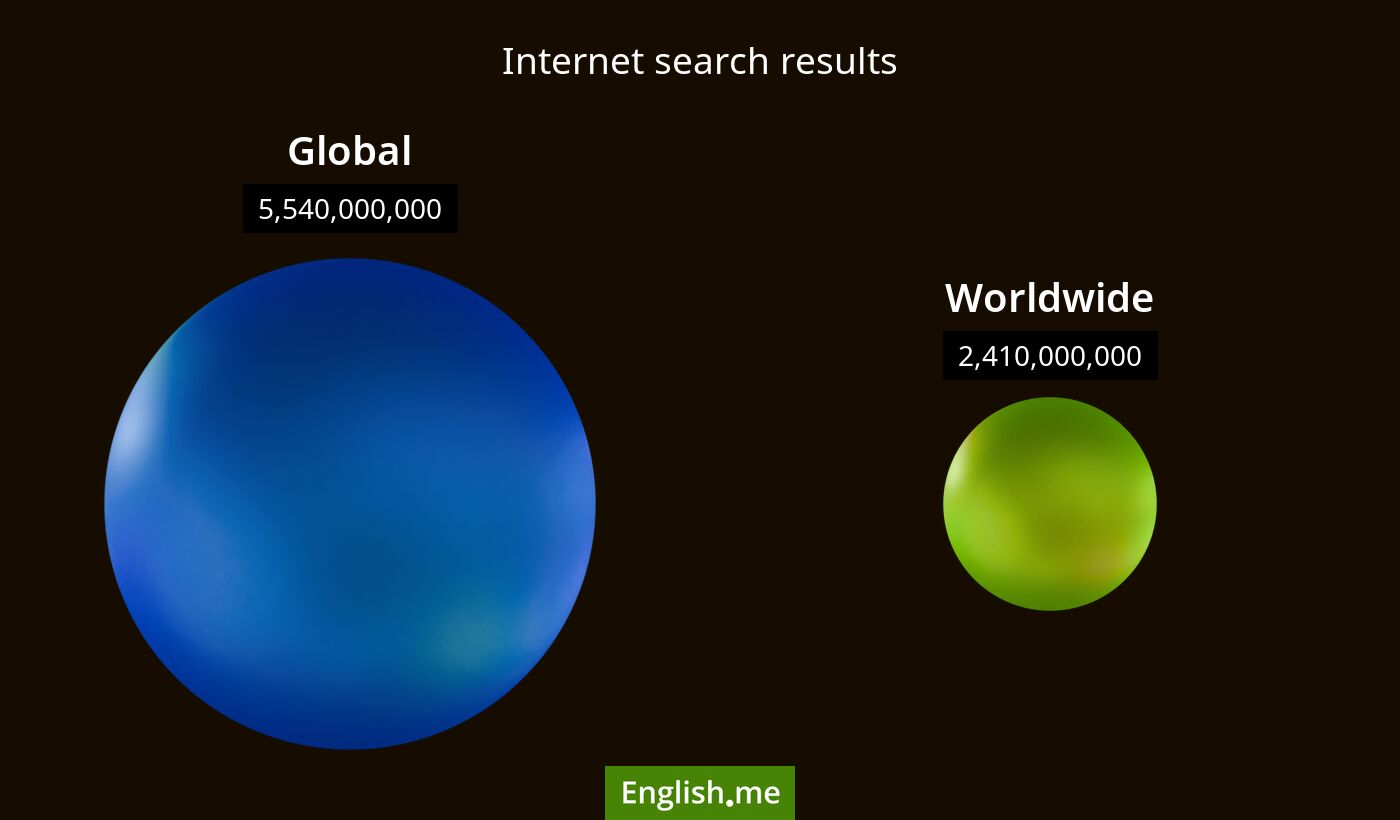"Global" vs. "worldwide": same meaning, different vibes

 What is similar?
What is similar?
Both "global" and "worldwide" refer to something that encompasses the entire world or extends across all parts of the globe. They are often used interchangeably to describe phenomena, activities, or attributes that have an international scope or impact.
 What is different?
What is different?
"Global" often pertains to concepts, issues, or processes that affect the world as a whole, sometimes in an abstract or systemic sense, such as "global economy" or "global trends." It can also imply a holistic approach within a particular system. "Worldwide," on the other hand, emphasizes the geographical distribution or occurrence of something across all parts of the world, highlighting its presence or availability in various countries and regions.
 Which one is more common?
Which one is more common?

 Examples of usage
Examples of usage
Global- Global warming poses a significant threat to ecosystems around the planet.
- The company is developing a global strategy to expand its market presence.
- They discussed global solutions to address poverty and inequality.
- The new smartphone model has been released worldwide.
- She is known worldwide for her contributions to science.
- The event attracted participants from countries worldwide.

 English
English español
español française
française italiano
italiano deutsche
deutsche 日本語
日本語 polski
polski česky
česky svenska
svenska Türkçe
Türkçe Nederlands
Nederlands